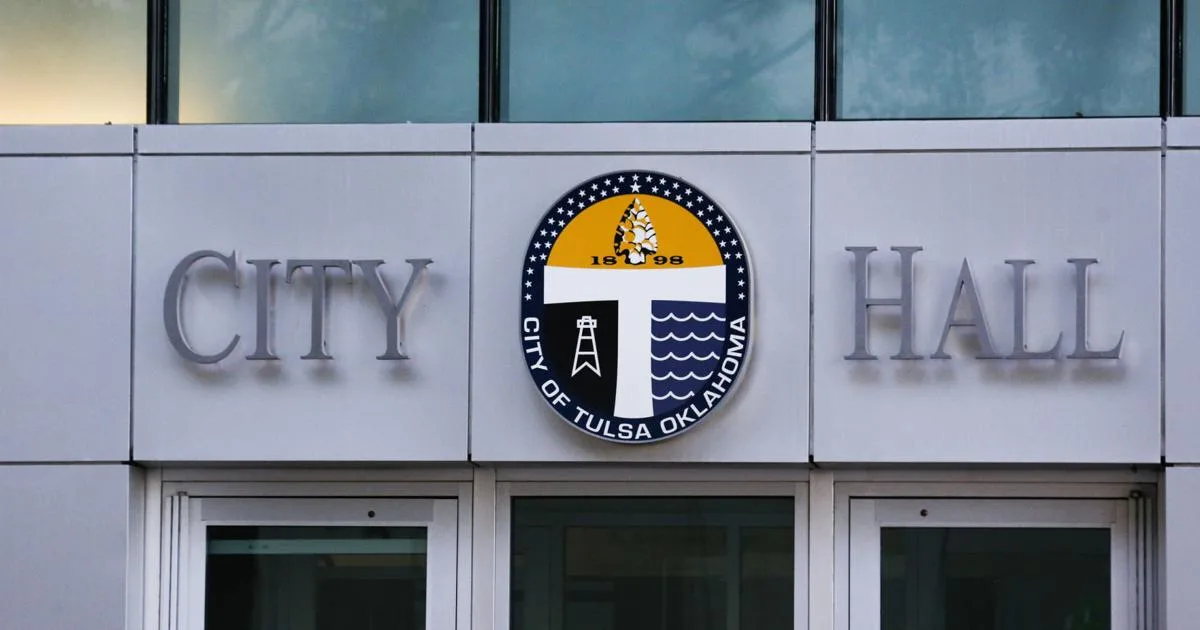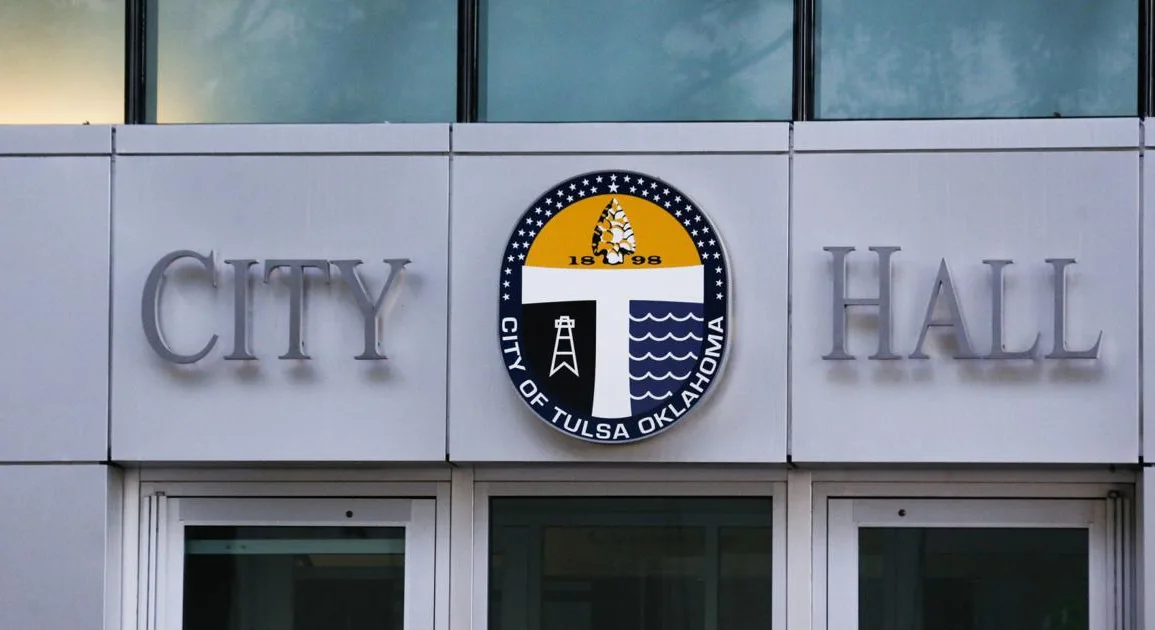
When it comes to reparations, how the word is defined means everything.
Take the situation unfolding at City Hall. Last week, the organizers of Beyond Apology, a community-led discussion designed to educate Tulsans about possible reparations and repair for those harmed by the 1921 Tulsa Race Massacre, presented their final report to city councilors and the mayor.
The glossy 54-page document includes a summary of the public meetings, a list of potential action items shared by attendees and information on reparations programs previously envisioned by the state’s 1921 Tulsa Race Riot Commission and Human Rights Watch.
But the only actual recommendation in the report reads as follows: “In line with successful local, national and international reparations programs, we recommend that the City of Tulsa establish a government sanctioned task-force or commission to establish and implement the terms of a reparations program.”
People are also reading…
Greg Robinson, project manager for Beyond Apology and one of the organizers of the program, presented the report to city councilors and Mayor G.T. Bynum in separate meetings last week.
“We presented our recommendation around a government-sanctioned task force or commission to implement a reparations program as well as pointed out the best practices that we were familiar with (regarding) municipal reparations programs like that of Evanston, Illinois, and the work of First Repair,” Robinson said. “And the mayor seems amenable to going down and exploring and implementing those options. …
“So we came away with a very positive feeling and (willingness) to work towards tangible action on those things.”
What does ‘reparations’ mean?
Bynum told the Tulsa World last week that he would support the creation of a task force or commission like the one recommended in the Beyond Apology report but maintained his opposition to reparations in the form of direct cash payments.
He said he looks forward to working with his colleagues on the Tulsa City Council to move the effort forward.
“The challenge is the term reparations means different things to different people,” Bynum said. “I told the team behind the report when I met with them that I felt like we’re already doing a lot of things in this regard, whether that’s the (1921 Tulsa Race Massacre) graves search or our work in Kirkpatrick Heights in Greenwood, in a community-led planning process with a commitment to community-led governance of it moving forward.”
Bynum said he understood the recommendation to create a task force or commission to be an extension of the dialogue process undertaken in the Beyond Apology program.
“‘I’m a big believer and always have been that there is no harm in bringing people together and talking through an issue,” Bynum said. “And I view that task force as a means for us to do that in a more in-depth way than I think we’ve been able to do as a community to date.
“A lot of the discussion to date has been, ‘Well, do you support cash payments or not? And if you don’t, then we don’t want to hear anything from you.’ But I think what the report showed was for most of the people that they interviewed, the top priority was around education. I think that is really interesting.”
Bynum said his discussion with the Beyond Apology organizers touched on a housing assistance program implemented in Evanston, Illinois, as part of its reparations program.
“That is something I would also love to see us take a look at,” Bynum said. “So I think there are things that we can do that aren’t the kind of stereotypical one-size-fits-all notion of reparations.
Bynum said he also made clear that he does not support lawsuits or settling lawsuits.
“And I am on record as not being supportive of taxing this generation of Tulsans as a punishment for something they didn’t do,” Bynum said. “But I also think that there are other things that we can do as a community because we want to do what we can for the descendants of victims.”
Priorities inform work
The Beyond Apology meetings last year consisted of four community gatherings that drew 256 unique participants, 83 of whom offered their perspectives and priorities on how the city should address the issue. Of the 83, about one-fifth were descendants of Race Massacre victims.
Their priorities, in descending order, were education; financial compensation; community and economic development; housing and home ownership; land; health and wellness; systems change/policy; and cultural identity.
Robinson said the priorities listed in the Beyond Apology report are intended to inform the work of the proposed commission.
In other words, there is more to reparations than cash payments.
“The international definition of reparations takes several forms,” Robinson said. “There is acknowledgement, which are things for instance like apologies, which we’ve seen in Tulsa. There are things like ensuring that you have proper burials like we started to see. … Those are certainly within that reparations mode.
“It is education and ensuring that the group is able to increase its education. It is restitution, and that restitution can take the form of obviously direct cash payments; it can take form in payments to be able to access things that they previously weren’t able to access. …
“And so when we think of the definition of reparations, we think of the international definition; it has several different buckets.”
The Beyond Apology recommendation makes clear that a city’s “equitable policy” is no substitute for a “reparations program.”
“The difference between a reparations program and equitable policy is that reparations acknowledges that there was a harm that was done to a specific group of people that equitable policy by itself is not going to fix,” Robinson said. “And so the difference is that you’re saying, on top of the equitable policy that we put in place moving forward so we don’t repeat those things, we’re going to go back and fix the thing that we did wrong.”
Bynum and Robinson see this differently.
“I fundamentally disagree with any notion that the city caused the harm in this instance. Murderers and criminals caused the harm,” Bynum said. “So I do not agree with that premise for the city forming a task force. But as we discussed Wednesday, I do believe the city should form a task force on behalf of the citizens of Tulsa who want to be of help to descendants of victims.”
The Beyond Apology program has its roots in a nonbinding resolution approved by the City Council and Bynum in June 2021 apologizing for the city’s role in the massacre 100 years earlier.
The document also included a commitment by city councilors and the mayor to make “tangible amends” for the violence and to establish within six months a community-led process to evaluate the “recommendations for reconciliation” made by the state’s 1921 Tulsa Race Riot Commission.
The new Tulsa World app offers personalized features. Download it today.
Users can customize the app so you see the stories most important to you. You can also sign up for personalized notifications so you don’t miss any important news.
If you’re on your phone, download it here now: Apple Store or Google Play



